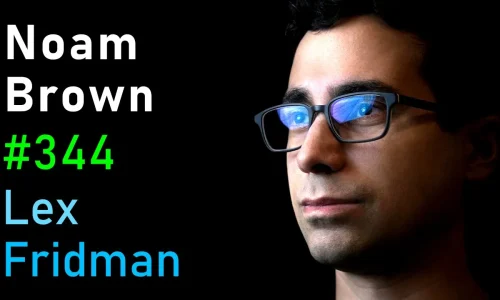See all Lex Fridman transcripts on Youtube

Noam Brown: AI vs Humans in Poker and Games of Strategic Negotiation | Lex Fridman Podcast #344
2 hours 29 minutes 21 seconds
🇬🇧 English

Omnivision Solutions Ltd
- Getting Started
- Create Transcript
- Pricing
- FAQs
- Recent Transcriptions
- Roadmap